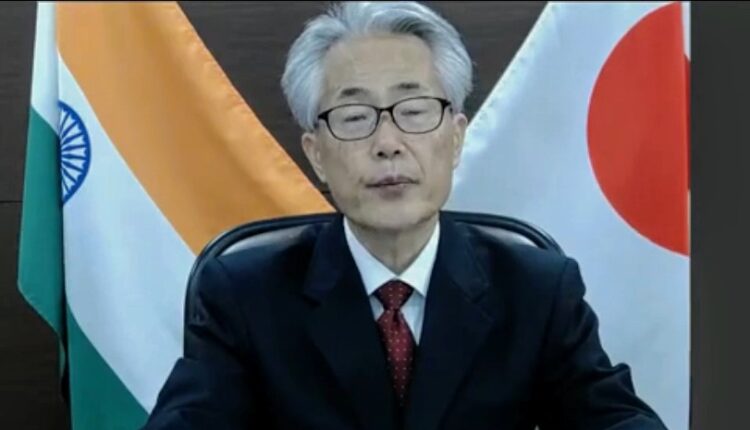Face emerging risks climate change, natural disasters, and cyber-threats collectively: Japan Ambassador
Maintaining supply chain resilience through better connectivity and risk management is going to be the top driver of success for companies in the post COVID world
NEW DELHI: Satoshi Suzuki, the ambassador of Japan to India has called upon the world leaders to join hands to overcome the emerging risks to grasp future growth.
He said in addition to the traditional risks such as geopolitical risks, trade restrictions, tariff measures, and currency fluctuations, companies now have to deal with new risks such as climate change, more frequent and devastating natural disasters, and cyber risks.
Ambassador Satoshi Suzukisaid this while addressing the ‘Indo Pacific Business Summit’ organized by CII in partnership with the Ministry of External Affairs of India recently.
Dr. Naushad Forbes, Past President CII and Co-Chair, Forbes Marshall Ltd Ms. Riva Ganguly Das, Secretary (East), Ministry of External Affairs, GoI HE Hon Barry O’ Farrell, High Commissioner, Australian High Commission H.E. Mr. Juan Angulo Monsalve, Ambassador, Embassy of Chile Emmanuel Lenain, Ambassador, Embassy of France Federico Salas Lotfe, Ambassador, Embassy of Mexico Dr. Hussain Niyaaz, High Commissioner, H.C. of Republic of Maldives H.E. Atul Keshap, Charge D’Affaires, and Embassy of USA (invited) were also present on this occasion.
Japan Ambassador said that after witnessing the disruption of global supply chains caused by this pandemic, we all are now painfully aware of the risks inherent in global production and logistics.
For example, Japanese auto companies were severely affected by temporary disruptions in their production lines in Asia. The risks that companies must deal with today are increasingly more complex in nature.
“In addition to the traditional risks such as geopolitical risks, trade restrictions, tariff measures and currency fluctuations, companies now have to deal with new risks such as climate change, more frequent and devastating natural disasters, and cyber risks. They must also ensure that their operations are in compliance with human rights and labor-related standards of the free world. With COVID-19 related disruptions on top of these, I believe that none of the participating countries nor companies can mitigate these risks solely on their own,” he added.
While emphasizing that the pandemic has made the world recognize the need to change the way they connect and interact with each other in order to collectively cope with these risks in a more resilient way.
“Maintaining supply chain resilience through better connectivity and risk management is going to be the top driver of success for companies in the post COVID world. Both the public and private sectors must work together to achieve this end, by vigorously taking such measures as visualization of supply chains using digital technology, facilitation of trade procedures, and harmonization of regulations and standards. The Japanese Government is working with like-minded governments through such frameworks as the Supply Chain Resilience Initiative and the Quad to further these ends.”
Ambassador said, “Finally, I would like to point out once again, that the emerging risks that we see only serve to increase the need for all stakeholders to collaborate to overcome these risks and grasp future growth.”



